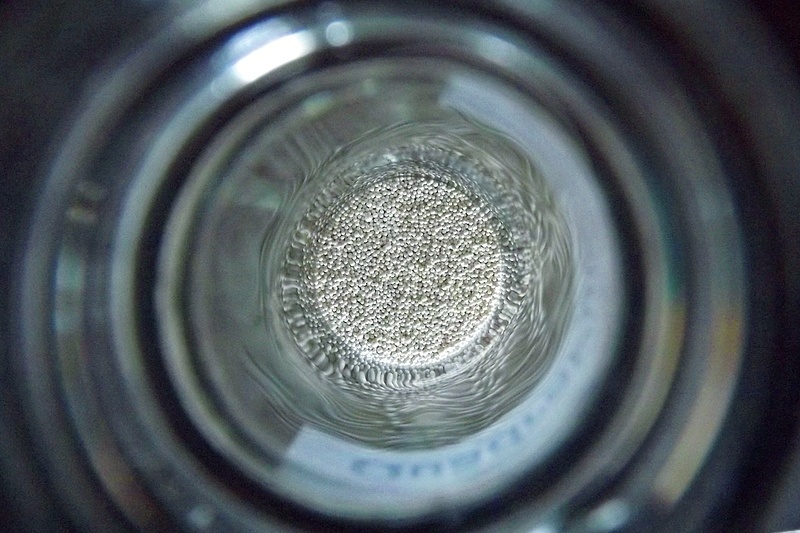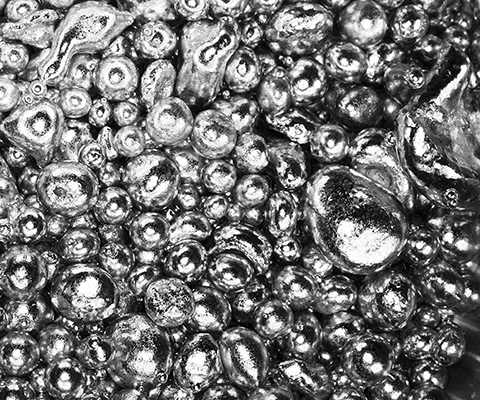Platinum group metals are among the most highly recycled materials in the world, with around 97% lower carbon intensity than newly mined (primary) metals1. At Johnson Matthey we can supply 100% recycled metal across all five of the platinum group metals (PGMs) using a mass balance methodology2, enabling a measurable way to reduce your carbon footprint.
Sustainable metal sourcing
|
In today’s rapidly evolving world, sustainability is no longer a choice - it’s a necessity. As industries face growing pressure to reduce environmental impacts and adopt more sustainable practices, sourcing materials that support a circular economy and a sustainable future are essential. PGMs are integral to countless applications, from automotive and pharmaceuticals to sustainable technologies. While mining remains an essential part of the supply chain, it comes with inherent environmental challenges. By reducing reliance on primary metal, recycled PGMs help mitigate these impacts while contributing to a more sustainable and resilient supply chain for the future. |
 |
Uncompromised quality and performance
Recycled PGMs (also known as secondary PGMs) come from a range of sources, yet once recycled their properties remain identical to newly mined metals. Through advanced refining processes, 100% recycled PGMs deliver the same exceptional quality and performance as primary PGMs with an added sustainability advantage. This ensures that customers can evaluate the switch to recycled metal without compromise.
Ensuring a transparent and measurable impact
At JM we use a mass balance approach to support customer seeking 100% recycled metal for their PGM products. By working closely with them to understand their specific needs, we provide access to recycled PGMs with this methodology, ensuring a tailored and sustainable solution.
Enabled by the interchangeability of recycled and primary metals, this chain of custody model allows us to track and source materials within our process. This provides transparency and confidence, giving customer a pathway to potentially reduce their Scope 3 greenhouse gas emissions.
This approach supports industries across many sectors, including metal refining, whereby materials from different sources are mixed during processing, yet maintain traceability, quality and performance.
Mass balance - how does it work in practice?
In our refining process, we blend inputs from diverse sources, processing both primary and secondary PGMs together within a single facility.
Through the mass balance approach, we employ a methodology to track secondary PGMs as they progress through our facilities. While the output remains physically a mix of primary and secondary sources, our tracking methodology ensures that the sustainability attributes – specifically its secondary origin – is accurately assigned to the corresponding to the mass of PGM.
For example, if 100kg of PGM is produced from a 50:50 mix of primary and secondary inputs, we can provide3 up to 50kg of fully recycled metal to the customer, supporting customers with their sustainability goals.
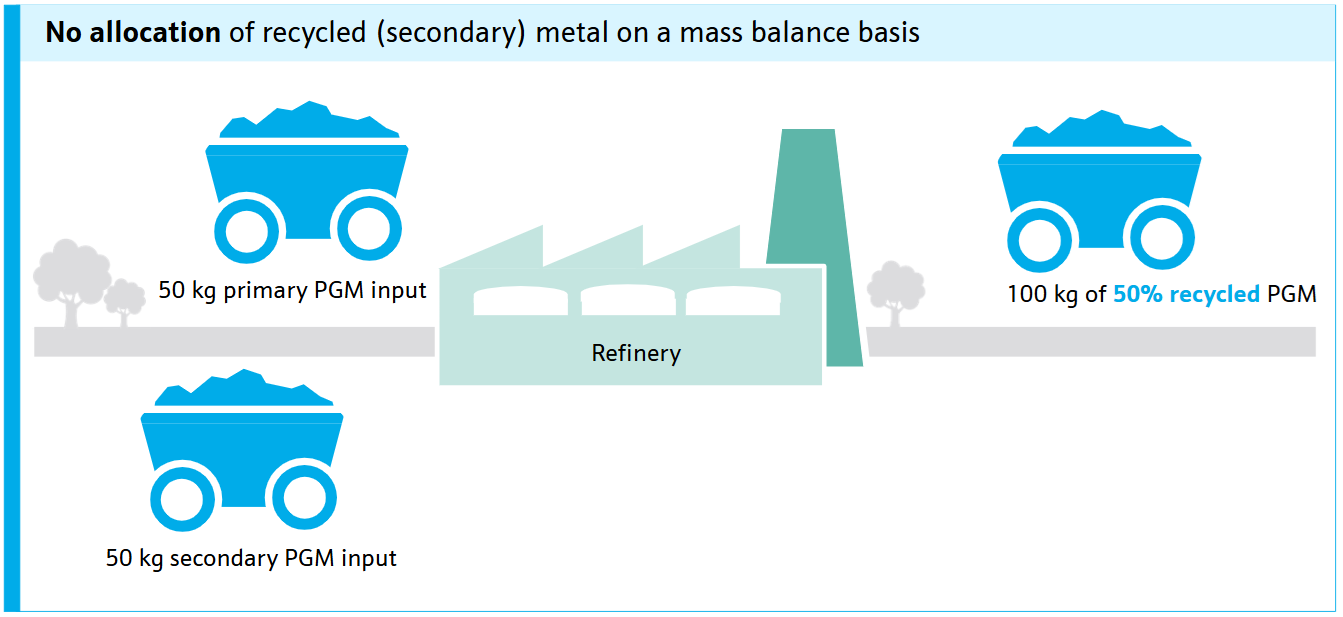
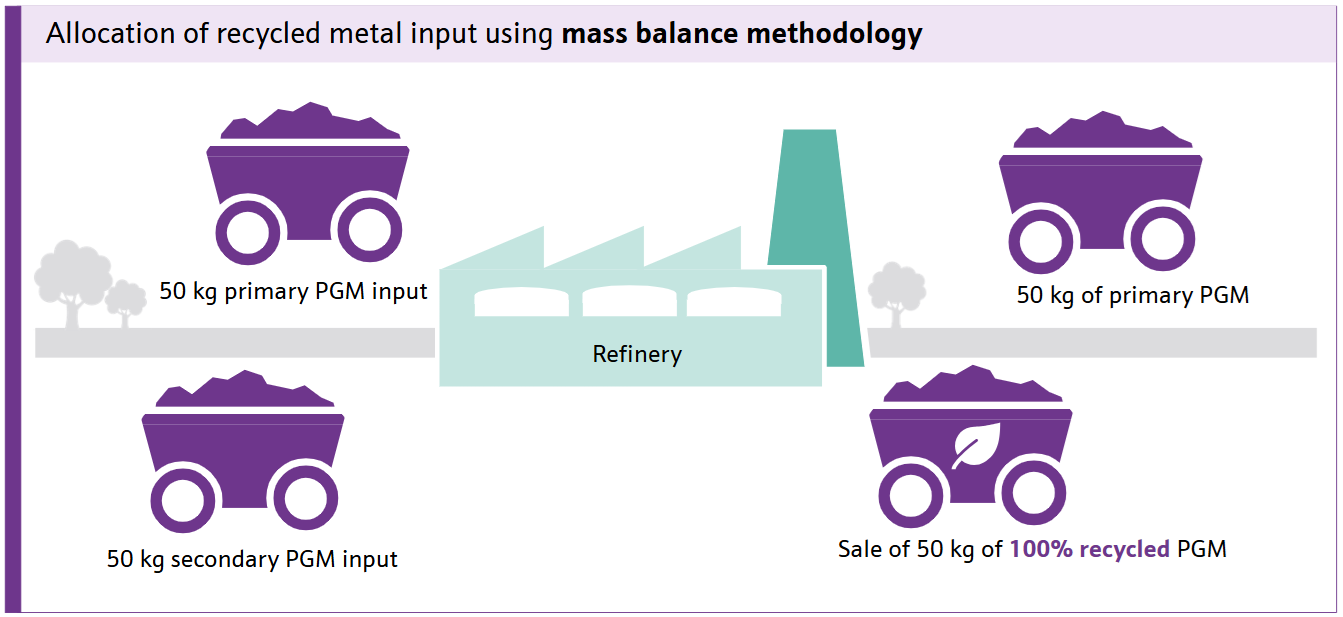
1 JM calculation based on International Platinum Group Metals Association (IPA) data.
2 Subject to agreement of commercial terms.
3 Metal can be purchased or apportioned on a mass balance basis for a closed loop input, subject to agreement of commercial terms.
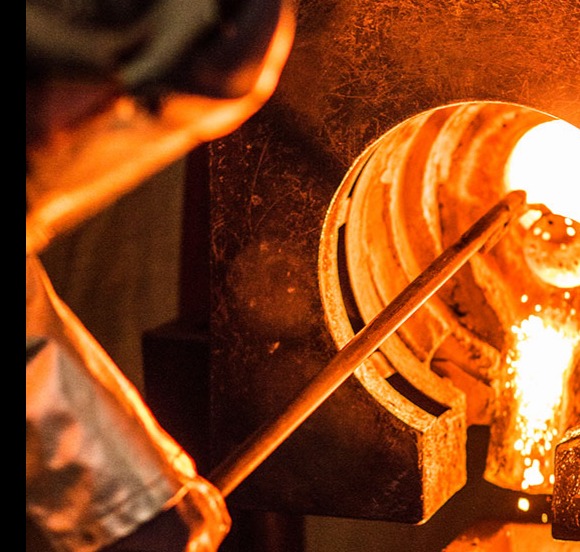
Secondary supplies and recycling
Learn more about the importance of secondary supplies and recycling
Read More